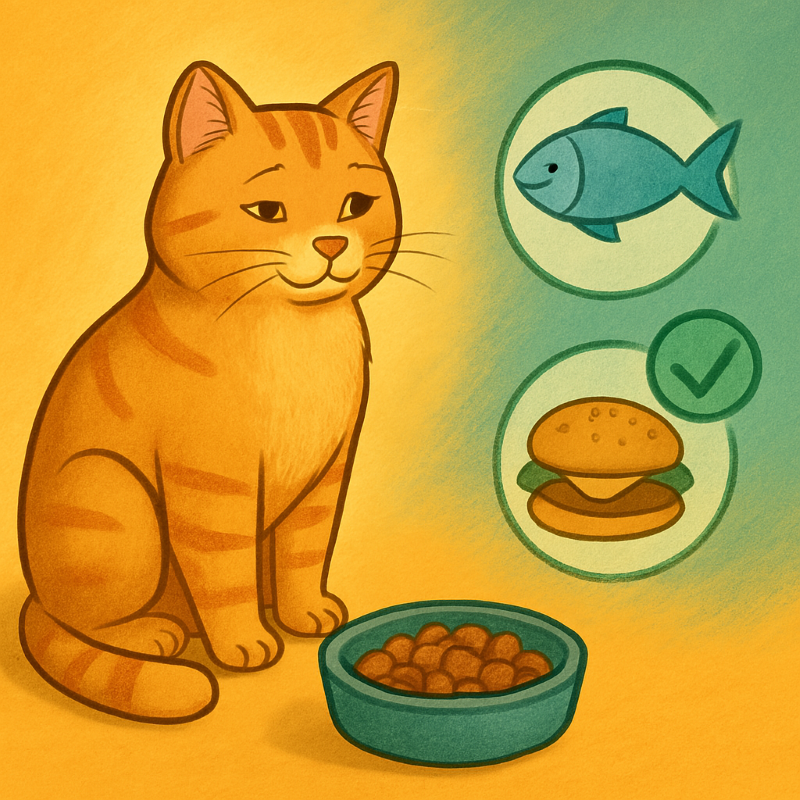Feeding Your Cat: The Ultimate Guide to Dos and Don’ts**
If there’s one thing that can make or break your cat’s health, it’s nutrition. Feeding your feline friend isn’t just about filling their bowl—it’s about giving them the right food to support their well-being, energy levels, and long-term health.
Unfortunately, not all cat food is created equal, and there are plenty of hidden dangers lurking in those pretty packaging designs. Let’s dive into the dos and don’ts of feeding your cat the right way.
🚫 What NOT to Feed Your Cat
Not everything labeled as “cat food” is actually good for them. Some ingredients do more harm than good, and you’ll want to steer clear of these:
❌ By-products & fillers—If the label mentions “meat and bone meal,” “animal digest,” or added sugars, toss it aside. These ingredients are often low-quality leftovers with little nutritional value.
❌ Corn meal fillers—Corn isn’t inherently toxic, but it’s not great for cats, either. It’s just cheap filler that contributes to unnecessary carbohydrates.
❌ Carb-heavy meals—Cats are obligate carnivores, meaning they need protein over carbs. If their food is 50% or more carbohydrates, it’s not doing them any favors.
❌ Preservative-packed food—Many commercial pet foods rely on artificial preservatives to maintain shelf life. Avoid excessive chemicals, as they can lead to digestive and long-term health problems.
“ Healthy meals create happy tails—give your cat the best nourishment possible! “
Ying Yang
✅ What Your Cat Needs
Your cat’s diet should consist of essential nutrients that promote good health and longevity. Here’s what to prioritize:
✔ Protein—Cats thrive on high-quality meat, fish, or poultry. Protein helps maintain muscle mass, energy levels, and overall vitality.
✔ Taurine—This essential amino acid is critical for a cat’s heart, vision, and digestion. Without enough taurine, health problems can develop quickly.
✔ Vitamins & minerals—Just like us, cats need proper nutrients for their immune system, metabolism, and energy levels.
✔ Healthy fats—Omega-3 and Omega-6 fatty acids keep their coat shiny, skin healthy, and energy stable.
✔ Fresh water—Cats don’t drink enough water naturally, so it’s your job to keep clean, fresh water available at all times.
Do Cats Need Carbs?
In short—not really. While cats may get some carbohydrates from their diet, they don’t process them the same way humans do. If canned food contains fillers, aim to keep it under 50% for optimal nutrition.
Mealtime Strategy: Keep It Interesting!
Just like humans, cats get bored eating the same thing every day. Rotating their meals or offering different proteins keeps them engaged and prevents picky eating habits. If your cat suddenly loses interest in food, it might be time to switch flavors or brands.
Feeding your cat isn’t just about routine—it’s a commitment to their long-term health. By choosing the right food, balancing their nutrients, and making mealtime exciting yet structured, your cat will thrive for years to come.
🐱💙 Enjoy caring for your feline companion!




